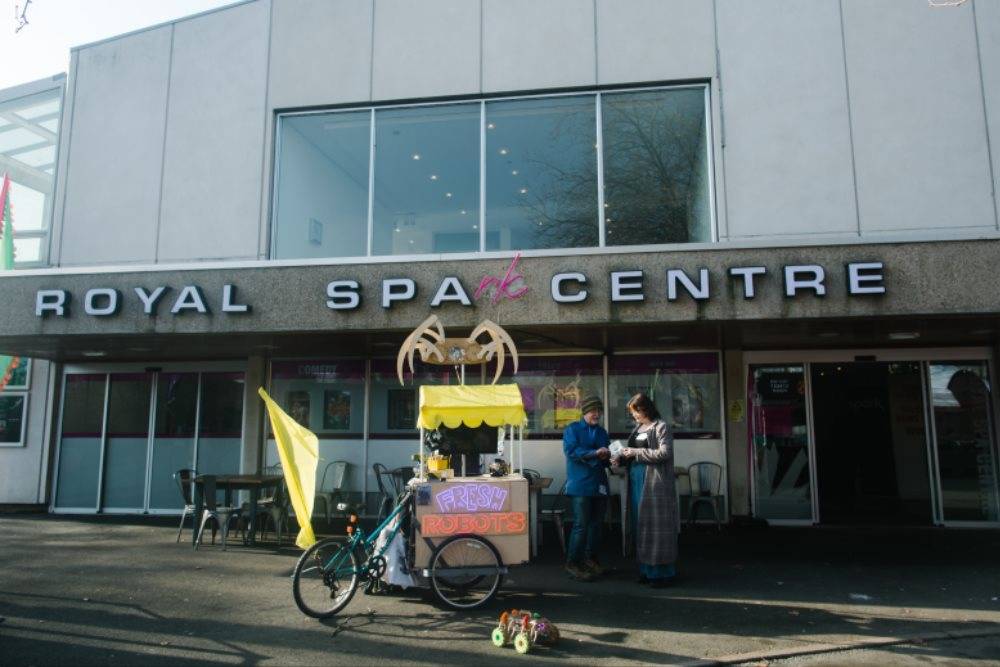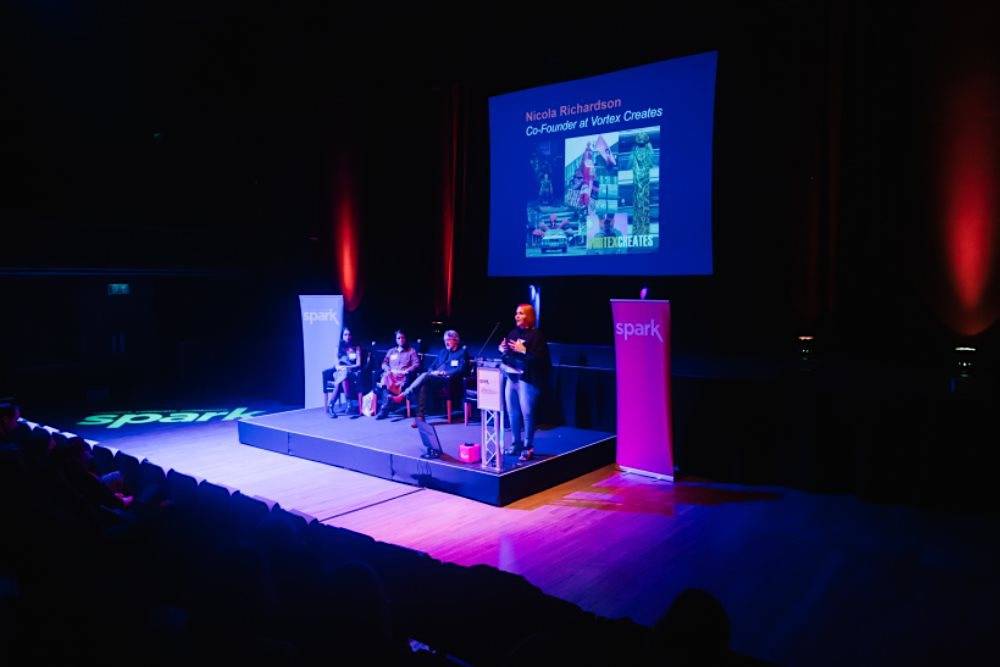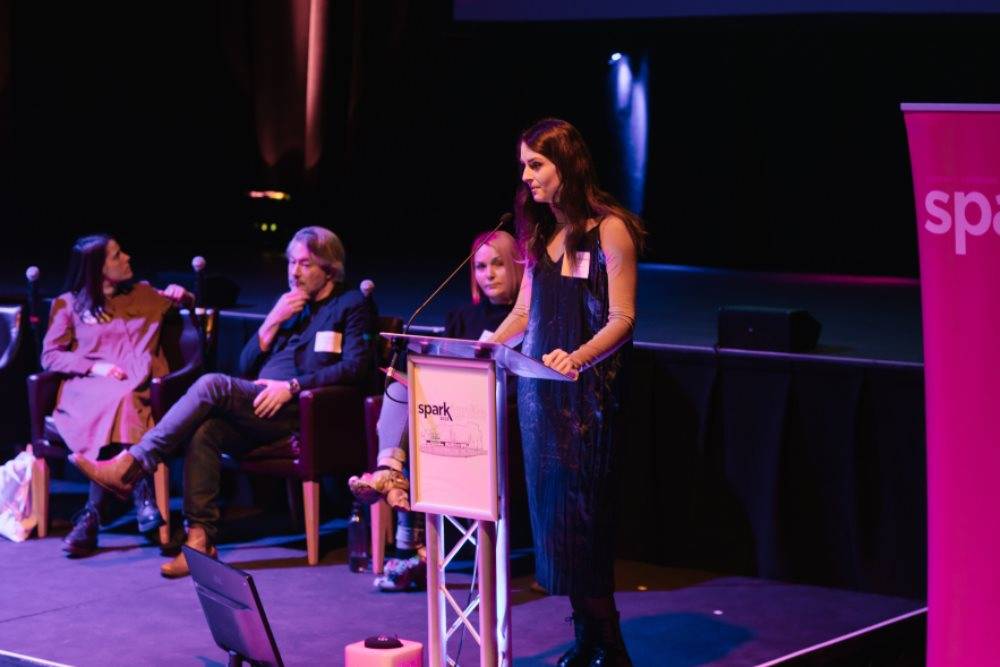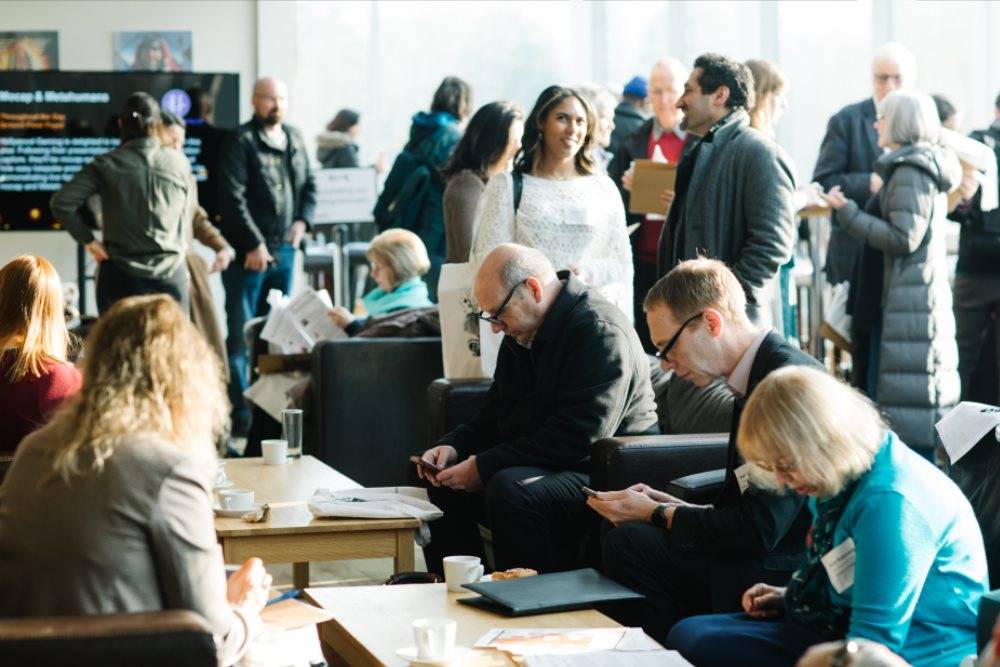Published 24 April 2023
Earlier this year team Vortex headed to Warwick District Council’s Spark:Ignite conference - a one-day symposium that aimed to turn creative talk into creative action and galvanise Warwick District’s creative business community around a common purpose: promotion and growth of the sector.
Nicola was invited to chair a panel titled Placemaking: Building Creative Communities, a session focused on placemaking as a multi-faceted approach to the planning, design and management of public spaces with the intention of capitalising on a local community's assets to create public spaces that promote people's health, happiness and well-being.
We are passionate about the environment around us and the interventions we create to bring JOY and connectedness. We believe placemaking is key for our sense of belonging and building communities who care about their spaces and each other. For us it’s all about the stories we tell - past and present - and the opportunities we provide for people to create their own. Coventry Moves was a project that let us loose on spaces across Coventry city centre creating five interventions which inturn told stories of innovation, social justice, resilience, people power and youth. Each piece championed a Coventry Hero whilst communicating the energy they represented. The narrative was told through a group of young people running through the city and rediscovering it, with the invitation extended to Coventry’s population to join them on that journey in a world that had just begun to emerge from the pandemic.
With Nicola on the panel was Purcell architect Smaranda Ciubotaru who spoke about their role in redesigning Leamington Spa’s town hall. Smaranada and her team recognise the importance of community feedback throughout the design process on what they require from the building as a public space to strengthen the area’s social fabric. Placemaking begins with community involvement, ensuring users of a space are not just passive recipients but active participants in the design and development process. By truly connecting the community with the process of concepting and designing spaces and how they are used, placemaking ensures that people’s environments meet their needs and desires and forms stronger relationships with all who live and work in the area. It builds a sense of ownership and pride in spaces and leads to greater use and maintenance of them.
Placemaking isn’t just restricted to the physical design of spaces, but also about developing the social and cultural context of a locale. In his Spark session, Alan Denyer of LTB Showrooms discussed the takeover of LTB, transforming a neglected and underutilised space into a vibrant and dynamic arts, music and heritage space for the community with the sole intention of making art accessible to all and encouraging and promoting creativity in the area. What can often hinder community action is permissions around using and developing spaces and knowledge of policy and procedures for developing and using them. This is where good partnership working and the sharing of knowledge and skills between all stakeholders is crucial. There is still much work to be done by policymakers to unlock the gates and update systems to champion inclusivity and shared ownership of spaces and needs of ALL who live and work in them.
Sometimes placemaking doesn’t even require a fixed specific physical space, highlighted by Royal Shakespeare Company’s Ida Ballerini when discussing breaking the confines of their building space to deliver public programmes outside of the standard RSC context across Stratford. Through working with local communities and participants, they were able to engage and resonate with new audiences bringing fresh perspectives. For the RSC, placemaking meant establishing themselves away from a space and fostering a wider sense of community encouraging social interaction and promoting civic engagement.
Placemaking can hold many different meanings and is completely changeable based on the organisation/individuals/project/goal involved, but at Vortex we believe it distils to three crucial things - connection, collaboration, celebration.
Joining Nicola on the panel was Ida Ballerini (Royal Shakespeare Company), Alan Denyer (LTB Showrooms) and Smaranda Ciubotaru (Purcell) who all spoke about the importance of placemaking in their work.
The entire session is available to stream here.




Or call us on 0757 506 8754